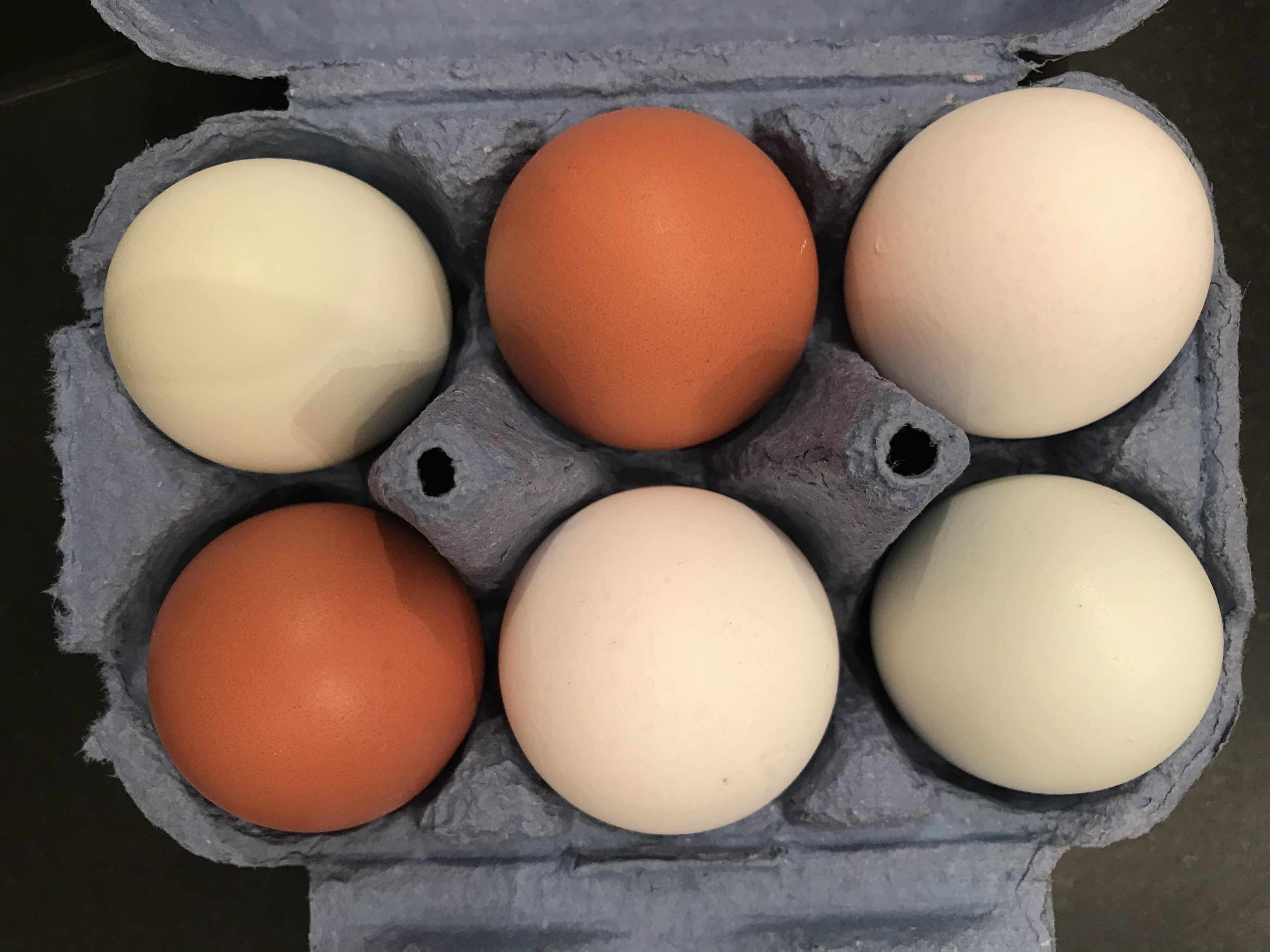Eggs
TIPS

Eggs are one of my favourite foods. They can be eaten at any time of day in so many different ways and are very economical.
Nutritional value
Eggs are a source of natural high quality protein. They contain 13 essential nutrients, are effective in weight management and benefit the diet of all ages. A large egg contains approximately 70 calories and although they also contain cholestral, the nutritional benefits outweigh the relatively hight intake of choletral.
Storage
Eggs which are eaten quickly can be stored at room temperature or in a cooler larder. If, however, the eggs are not going to be eaten quickly, they are best stored in the fridge (inside the box in order to maintin moisture) not on a shelf on the inside of the door but in the middle of the fridge where the temperature is more stable.
Types of eggs
We are presented with many types of eggs in terms of the habitat of the hens which lay them. It is generally thougth that the nutritional value of eggs do not vary significantly accroding to the conditions in which the hens live but but due to the age or type of hen itself.
Boiled eggs
Cooking time varies according to size and where they have been stored. But based on eggs at room temperature and large eggs, gently lowering the egg into a pan of boiling water, my rule of thumb boiled eggs are as follows;
Very soft boiled to eat with soldiers for breakfast: 4.5 – 5 minutes
Soft boiled to put in a fish pie, caesar salad or kedgeree: 6 minutes
Hard boiled for sandwiches: 7 plus minutes
Scrambled eggs
Crack 2/3 eggs per person into a bowl, beat and season. Add a knob of butter into a preferably non-stick pan, allow it to melt, then pour in the eggs. Stir with a wooden spoon, gentrly at first. When the egg begins to cook it will cook quickly so take care not to over cook it. Add a spalsh of milk or cream. Remove from the heat, remembering it will continue to cook.
Poached eggs
The fresher the egg the better it will poach. Crack the egg into a cup. Put a pan of water on the heat and bring it to simmering point. Using a spoon or the end of a wooden spoon, whirl the water around in the pan and drop the egg into the middle. Cook for approximately 3 minutes until you can see that the white is cooked. Lift out with a slotted spoon and place on some kitchen paper to soak up the water.
If you find that your eggs are not so fresh you can loosely cover a cup with some clingfilm and crack the egg into it. Twist the top of the clingfilm to make a bag and lower it into the water. This will take
Fried eggs
Use a non stick frying pan if you have one (easier to clean), drop a knob of butter or a tablespoon of olive oil. Crack the egg in the pan and cook for approximately 1 minute until the white is cooked and you can lift the egg out with a spatula.
